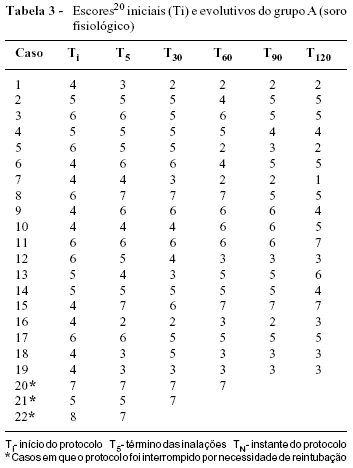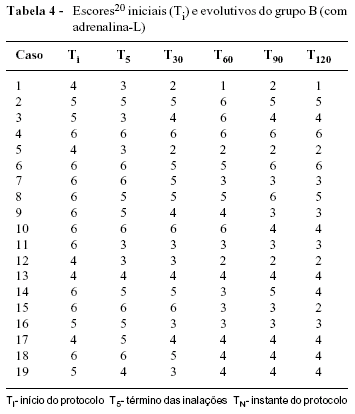OBJECTIVE: to assess the efficacy and safety of the use of nebulized L-epinephrine associated with dexamethasone in postintubation laryngitis. METHOD: We carried out a prospective, randomized, double-blind, placebo controlled study with two cohorts of patients with postintubation laryngitis graded 3 to 6 by Downes-Raphaelly score during two years. Our population was divided into two groups: A and B; both groups received intravenous dexamethasone and two doses of nebulized saline; however, only group B received L-epinephrine. The efficacy was assessed by Downes-Raphaelly score. The side effects of L-epinephrine were evaluated according to the occurrence of cardiac arrhythmia, increased blood pressure, and average heart rate of group B in comparison to group A. RESULTS: Twenty-two patients were included in group A (average score = 4.8) and 19 in group B (average score = 5.2). During treatment, 3 patients in group A presented a score of 8 and were reintubated. This group also showed higher mean clinical scores than group B during the first two hours of the protocol; these results were not statistically significant. No side effects were observed due to epinephrine. The gas blood measurements were adequate in both groups, but better in the control group. CONCLUSIONS: We did not observe increased efficacy for the treatment of postintubation laryngitis when nebulized L-epinephrine was used simultaneously with intravenous dexamethasone. Some indicators, however, did present a favorable trend when combined therapy was used and should be submitted to further evaluation.
intubation; laryngitis; epinephrine; dexamethasone







